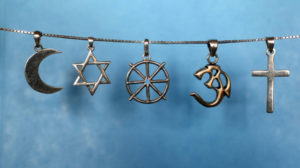Home » Commentary » Opinion » Can’t unscramble the faith omelette
· Ideas@TheCentre


How best to protect the fundamental human right to religious liberty is a key area of enquiry for the CIS, and it has become an increasingly contentious matter in Australian politics.
Concerns about such issues as the legal change to the status of marriage, the scope of faith-based organisations to hire staff sympathetic to the organisation’s objectives, and the freedom for health care practitioners to object to the provision of certain services provide just three examples of such contention.
The adequacy of religious freedom protections in Australia has been now reviewed by the Ruddock Inquiry established by Prime Minister Malcolm Turnbull after the ’marriage equality’ postal survey in later 2017 — although the government has yet to release Ruddock’s findings.
Nonetheless, advocates acknowledge that many Australians have only a very low level of concern about religious freedom — especially since the 2016 Census found 30% of Australians indicated they have no religious affiliation whatsoever.
Religion, it would appear, is viewed by many as something that should be consigned to the private realm of the mind and have no bearing on wider aspects of social life or public policy.
The result is that religious believers — whether they are teachers, sports superstars, or judges — are increasingly met with vilification, derision, confected outrage, and bullying mockery.
Of course, practising a faith is not a separate or completely private part of a person’s life. Yet in the event that such hostility to religion should prevail, religious believers are likely to find it harder to manifest their faith once they cross the threshold of their own front doors.
In her 2018 Acton Lecture at the Centre for Independent Studies, the Honourable Justice Debra Mullins engaged with the increasing hostility confronting religious believers – particularly Christians — when they venture into the workplace, and beyond.
Justice Mullins is no stranger to such challenges having, herself, faced allegations of conflict of interest because of her role as both judge and Chancellor (senior legal officer) of the Anglican Diocese of Brisbane.
How to take one’s faith into the professional work place is key for her. Justice Mullins argues that religious belief is a crucial component of a person’s identity, and that trying to keep areas of one’s life separate from religious belief is like to trying to unscramble an omelette.
Can’t unscramble the faith omelette